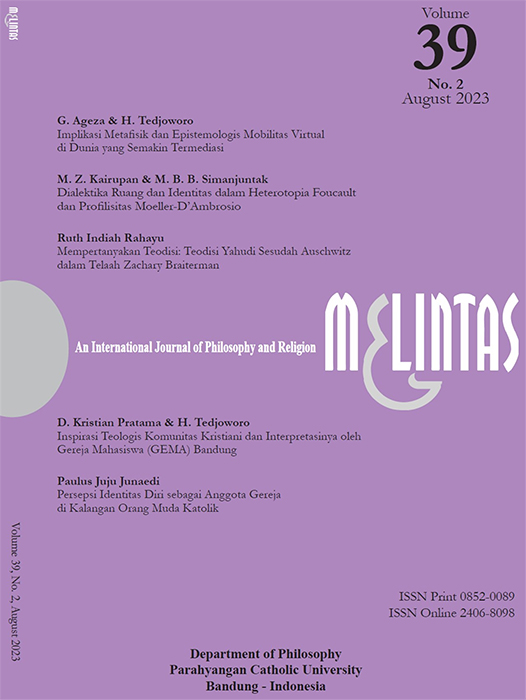Mempertanyakan Teodisi: Teodisi Yahudi Sesudah Auschwitz dalam Telaah Zachary Braiterman
DOI:
https://doi.org/10.26593/mel.v39i2.7780Keywords:
theodicy, holocaust, Auschwitz, Jewish people, Jewish theology, postmodernityAbstract
The 20th century holocaust against Jews in Auschwitz, Buchenwald, and other concentration camps was the starting point for the change in modern Jewish theology towards contemporary theology. Contemporary Jewish theologians, rabbis, and philosophers have revisited their theodicy by critically reading scriptural texts and traditions (Midrash). The substance debated in theodicy is about God’s goodness which is in conflict with God’s omnipotence so that evil and suffering occur. The problem of Jewish theodicy after Auschwitz was studied by Zachary Braiterman by explaining the split between the hegemony of Jewish theodicy with a religious discourse and anti-theodicy with a pagan discourse. Braiterman uses a postmodern approach to map the criticism of Jewish theologians and philosophers towards the universal truth of theodicy before Auschwitz. This new discourse is useful for transforming the cultural changes of modern Jewish society from its marginal position in the text to becoming the main figure (anthropodicy). It seems that Braiterman is supporting the anti-theodicy movement to move beyond the nightmare of the holocaust in order to free the Jewish people from suffering by critically rereading texts and tradition.
Downloads
Published
Issue
Section
License
Copyright (c) 2024 Ruth Indiah Rahayu

This work is licensed under a Creative Commons Attribution-NonCommercial 4.0 International License.
MELINTAS applies the Creative Commons Attribution (CC BY NC) license to articles and other works we publish. If you submit your paper for publication by MELINTAS, you agree to have the CC BY NC license applied to your work.


